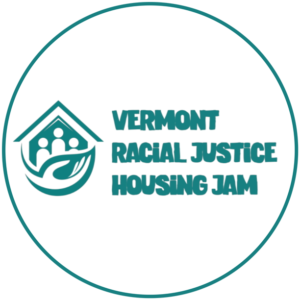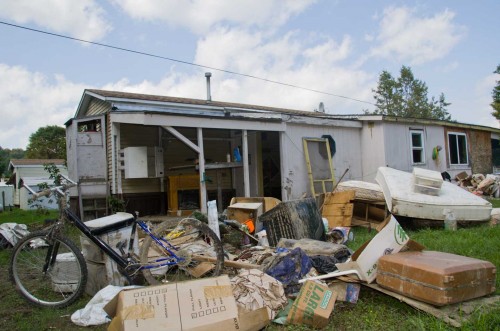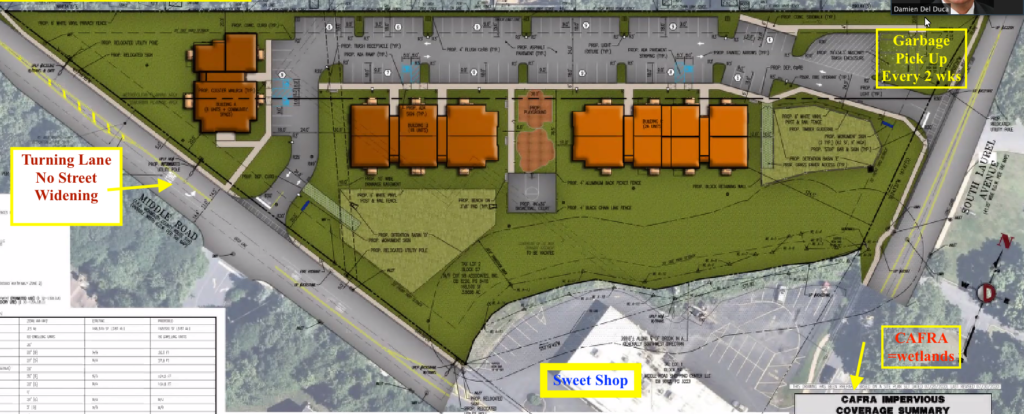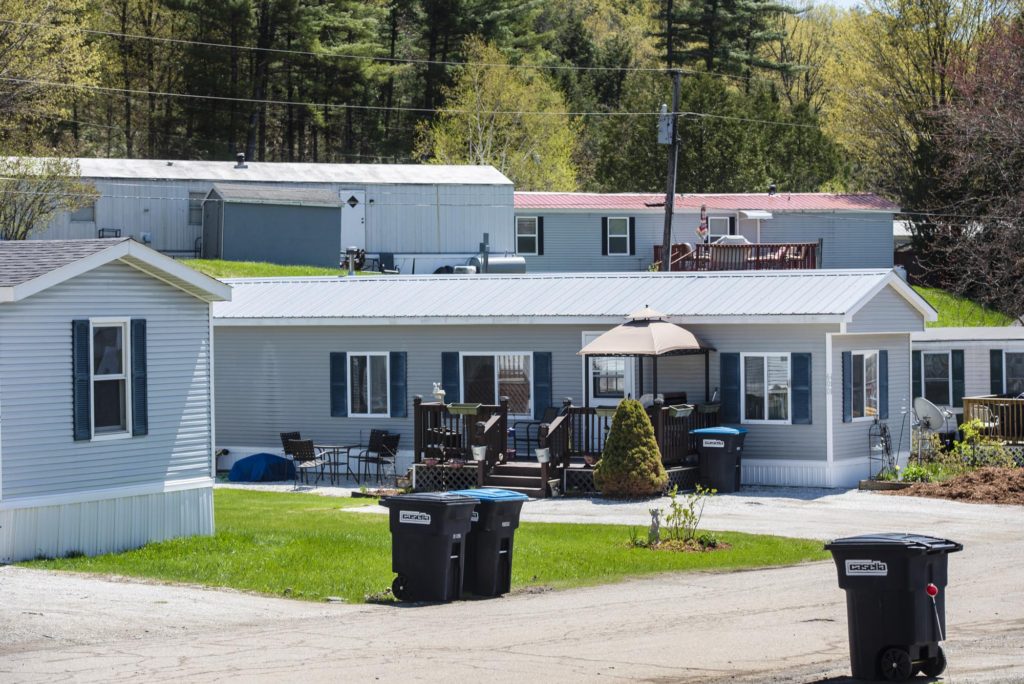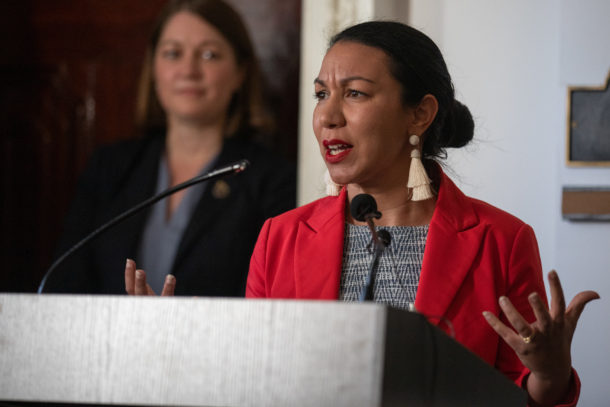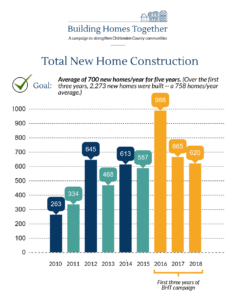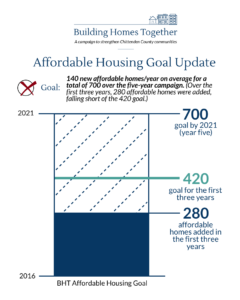A consideration of the issue and the resources available for renters
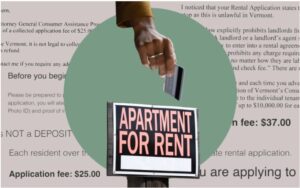
You may have seen this recent VTDigger article, which highlights the illegal practice of collecting rental application fees and the uncertainty created by vague wording in Vermont law around what constitutes an “application fee.” Under Vermont state law, rental application fees are clearly illegal. But are other fees related to the rental application process illegal too? According to Vermont Legal Aid, the answer is clearly yes; according to the Vermont Landlord Association, the answer is clearly no.
This blog post is intended to clarify some of the context around the issue and provide resources for renters who are trying to secure housing in this uncertain environment.
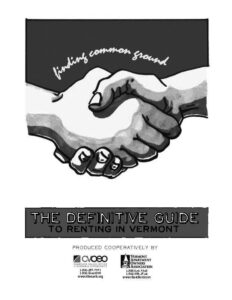 The Definitive Guide to Renting in Vermont, published in 2015 by CVOEO’s Vermont Tenants Program in collaboration with the Vermont Landlord Association, states that application fees are not legal, but that “charging potential renters for the actual cost of background and credit checks is permitted.”
The Definitive Guide to Renting in Vermont, published in 2015 by CVOEO’s Vermont Tenants Program in collaboration with the Vermont Landlord Association, states that application fees are not legal, but that “charging potential renters for the actual cost of background and credit checks is permitted.”
This is a stance Vermont Tenants has maintained since the guide was written. Vermont Tenants cannot present a stronger position on the debate until a legal precedent is set. As a service and education organization (rather than a legal one), we don’t have the tools or the credentials to interpret the legislative intent of the statute – that is for the lawyers.
Meanwhile, even with the interpretation that the actual cost of credit and background check fees are permitted, it is likely that fees are collected for credit and background checks that don’t happen. In this rental housing market with the lowest vacancy rate we’ve seen in many years and a high number of applicants for every available apartment, if a landlord is charging all applicants the credit and background check fees, it is highly unlikely that all of these checks are actually being run. And if landlords are running the checks for all applications submitted, this practice is wasteful and impractical in a market where hundreds of applications are submitted for any single unit.
In the meantime, it is the lowest-income Vermonters who are most negatively impacted
Unfortunately, in this confusion, the people most impacted are the lowest-income Vermonters. A competitive rental market means that even slight disadvantages can pose real barriers to renting for those pinched hardest by the housing crisis, and discrimination is harder to prove. Leaving the decision up to the renter on whether or not they choose to speak up about their rights and refuse to pay a rental application fee or file a complaint will negatively impact the people already most vulnerable in their housing search. As VTDigger reports, the charging of any kind of fee to apply for housing will continue to prevent many people from submitting enough applications to actually get access to the housing they need. This is a systemic problem that could be addressed by clarity in statute – and better enforcement.
What can we do?
One solution some tenant advocates propose to renters in their housing search is to pull their own credit check report and offer to share the report with each potential landlord. Another solution offered is for prospective tenants to ask for a copy of their credit report after the landlord pulls it. Of course, this still puts the tenant in a vulnerable position, and some may not want to jeopardize their relationship with a potential landlord.
Although the law is very clear that rental application fees are illegal in Vermont, the practice is still common. One contributing factor is the third-party application platforms used by many larger rental companies which don’t allow customization to the forms. Some housing providers, report that the software they rely on doesn’t allow them to change the language from “application fee” to “credit check” fee. Not every renter is aware of the laws around rental application fees, and even those who do know may be hesitant to assert their rights with such stringent competition for rental units.
Some renters have found remedy by contacting the state Attorney General’s Consumer Assistance Program. If Vermonters are unjustly charged an application fee (worded as such), they may be able to recoup their costs by filing a complaint through the Attorney General. According to VTDigger, some rental companies stopped charging rental application fees after receiving several complaints through the program. Landlords can choose to include the cost of background checks and credit checks in their overall business operating expenses, and adjust their rent accordingly.
9 V.S.A. § 4456a “Residential rental application fees; prohibited says “A landlord or a landlord’s agent shall not charge an application fee to any individual in order to apply to enter into a rental agreement for a residential dwelling unit. This section shall not be construed to prohibit a person from charging a fee to a person in order to apply to rent commercial or nonresidential property. (Added 1999, No. 115 (Adj. Sess.), § 5.)
Resources for renters
CVOEO has supports available for renters with questions about their rights and responsibilities under landlord-tenant law. For renters seeking support finding housing, working through barriers to renting, and developing application materials, the Finding Housing workshop – offered both as live Zoom classes and a self-paced, on-demand workshop – is a great resource. For renters seeking to repair their credit, to better understand their finances, or needing one-on-one financial coaching, CVOEO’s Financial Futures program has free educational opportunities as well. For people who are currently without housing or at risk of loosing their housing, CVOEO’s Community Action program can assist people with housing navigation, and potentially help with back rent, first month’s rent, security deposits and short-term rental subsidies for eligible applicants. As always, the Vermont Tenant’s Hotline – (802) 864-0099 and vttenants@cvoeo.org – is a resource for people with any questions about their tenancy.
-
For questions about your tenancy: Vermont Tenants’ Hotline at (802) 864-0099 and vttenants@cvoeo.org
-
To learn more about your rights and responsibilities as a tenant: Vermont Tenants Resources and Workshops (including Finding Housing and Tenant Skills)
-
For an expanded outline of tenants’ rights and responsibilities: Definitive Guide to Renting in Vermont
-
For legal support: Vermont Legal Aid at 1-800-889-2049
-
If you are in need of emergency shelter: Call Economic Services (1-800-479-6151) or 211 after hours/ weekends
-
Financial assistance and housing support for folks who are homeless or at-risk of homelessness: Community Action
-
To file a consumer protection report to recoup application fees: Consumer Protection Program
-
For support and guidance around housing discrimination: CVOEO’s Fair Housing Project
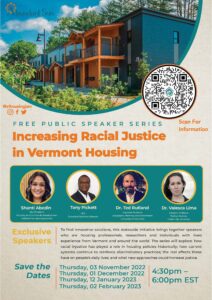 A group of Vermont housing organizations is hosting a
A group of Vermont housing organizations is hosting a 